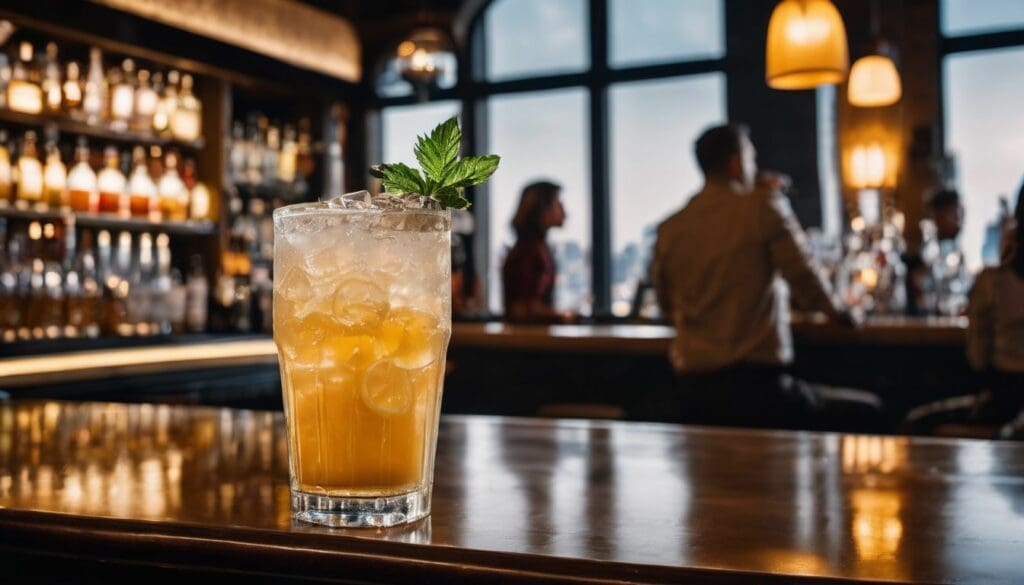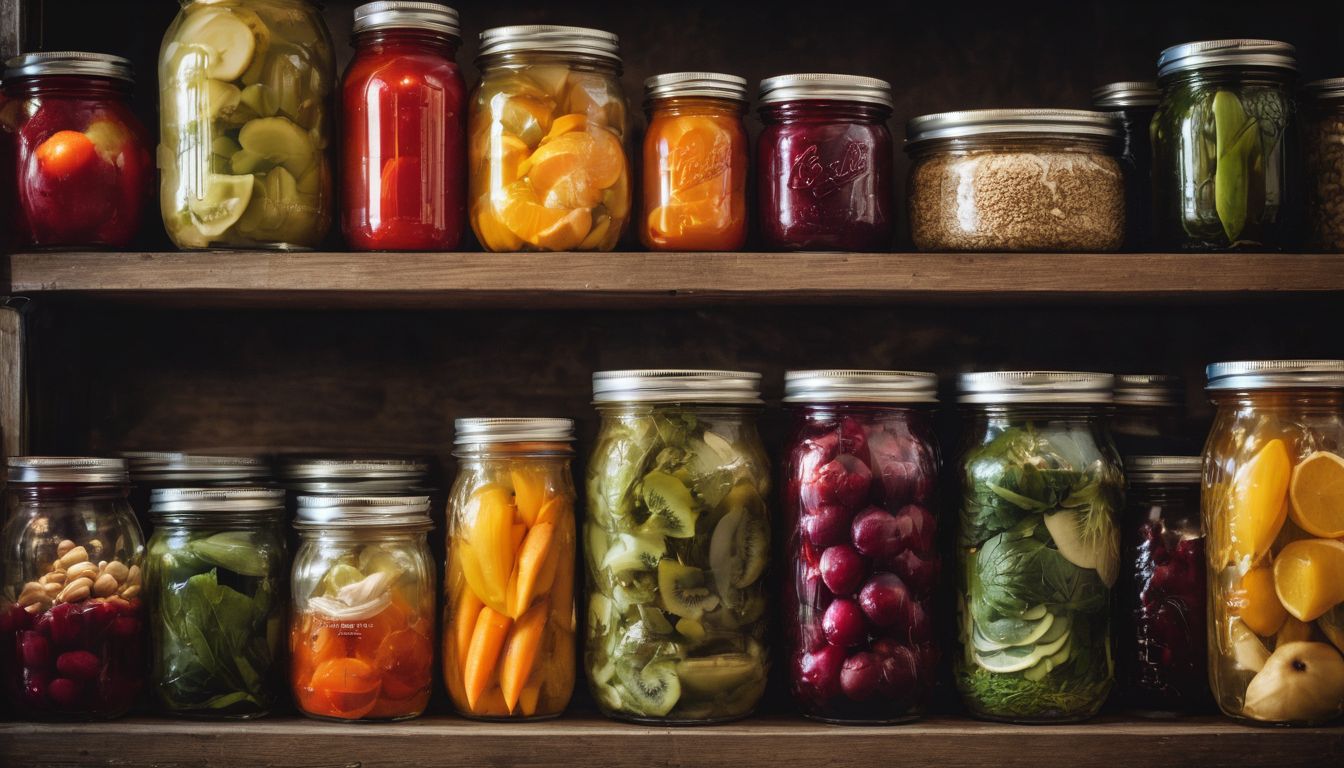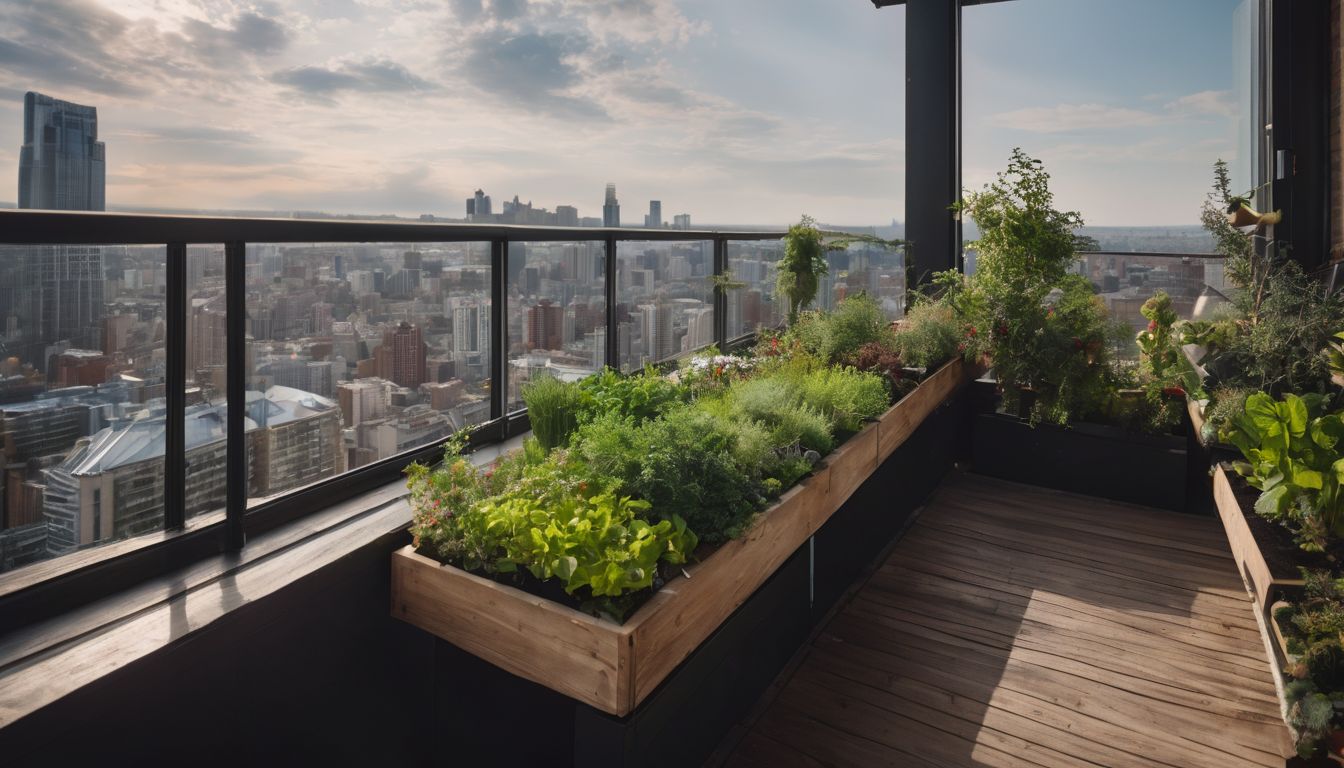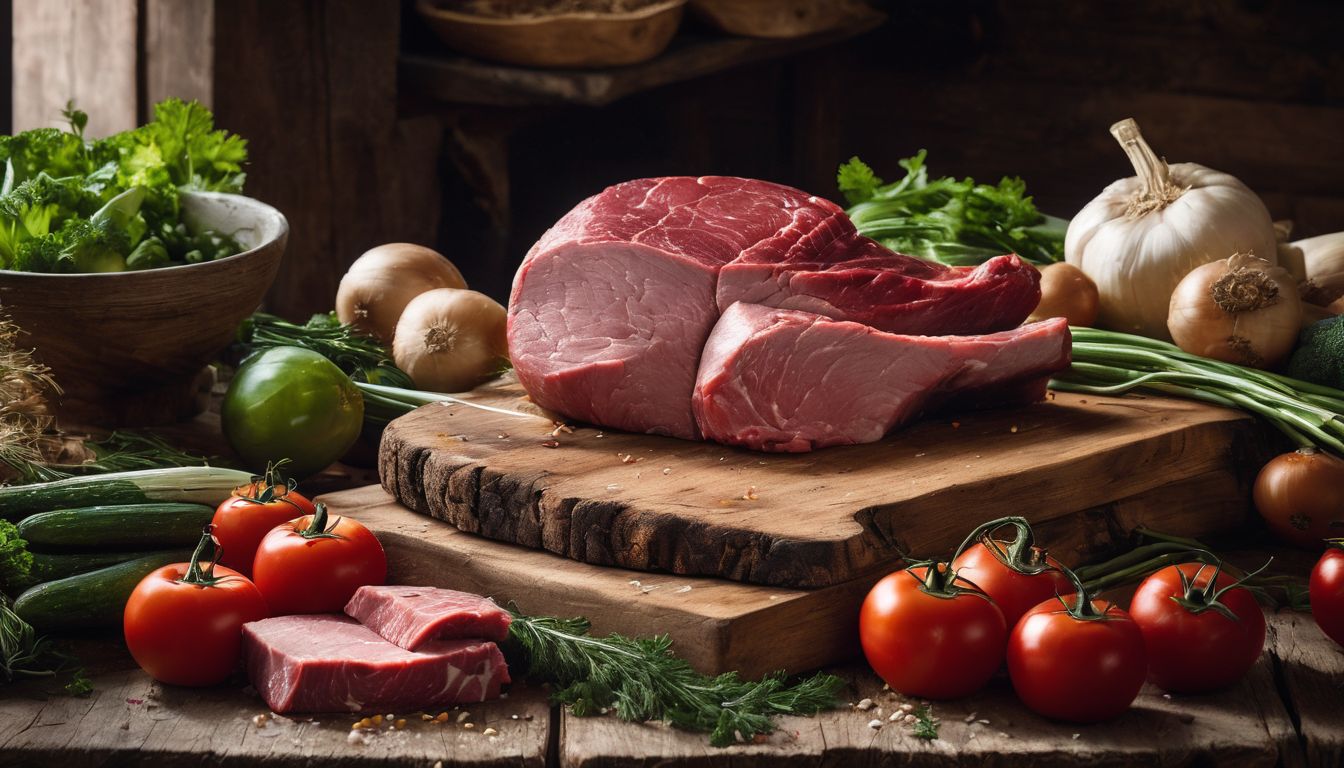Many of us seek healthier options that align with mindful living, yet we still yearn for the indulgence of a finely crafted drink. Did you know non-alcoholic beverages date back to Prohibition times? This post will explore the world of non-alcoholic craft beverages, unearthing their rich history and current boom.
Discover a new way to enjoy your drinks without compromise—let’s dive in!
Key Takeaways
- Craft breweries like Athletic Brewing Company are leading the charge in producing innovative and flavourful non-alcoholic craft beverages, meeting a demand for healthier lifestyle choices.
- The market for non – alcoholic drinks is growing due to increased health awareness and environmental consciousness, with key industry players investing in sustainable practices.
- Non-alcoholic beer origins trace back to Prohibition times with “near beer” and gained momentum with products like O’Doul’s altering consumer perceptions of alcohol-free options.
- Major beverage companies such as Heineken and Anheuser-Busch have joined the trend by launching their lines of non-alcoholic drinks, reflecting significant consumer interest.
- The “Sober Curious” movement has contributed to a cultural shift towards mindful drinking, resulting in a wider acceptance and popularity of non-alcoholic craft beverages.
The History of Non-Alcoholic Beverages
Non-alcoholic beer has been part of American history for decades, with the introduction of “near beer” during prohibition and the launch of O’Doul’s in the 1990s. These early developments laid the foundation for the non-alcoholic beverage industry we see today.
The origins of non-alcoholic beer in America
Brewers in America started producing non-alcoholic beer over a century ago. The trend began during the Prohibition era in the 1920s when laws banned alcoholic beverages across the country.
Brewers saw an opportunity to create “near beer” with very low alcohol content, often below 0.5%, to adapt to these strict new regulations.
These early versions of non-alcoholic beers paved the way for modern interpretations and innovations within the beverage industry. They catered not only to those avoiding alcohol due to regulation but also offered healthier alternatives for individuals mindful about their consumption choices.
This shift mirrors today’s environmental consciousness, as more people seek products that align with sustainable and responsible living principles. Craft breweries have taken notice, crafting artisanal drinks that provide both flavor and eco-friendliness without compromising on quality or taste.
The rise of “near beer”
After the origins of non-alcoholic beer in America, the prohibition era led to the rise of “near beer,” which became a popular alternative during a time when alcohol consumption was prohibited.
Near beer was a low-alcohol beverage that contained less than 0.5% alcohol by volume, allowing individuals to enjoy similar tastes and sensations without the intoxicating effects.
Brewers developed near beer as a response to consumer demand for familiar flavors while complying with regulations. This spike in popularity laid the foundation for modern non-alcoholic offerings and paved the way for contemporary craft breweries to produce high-quality, full-flavored non-alcoholic options catering to the growing demand from environmentally conscious consumers seeking sustainable alternatives.
Launch of O’Doul’s and its impact
O’Doul’s was launched as one of the first non-alcoholic beer options in the market. Its impact on consumers’ attitudes towards non-alcoholic beverages was significant, paving the way for a wider acceptance of alcohol-free offerings.
O’Doul’s also played a crucial role in altering perceptions about non-alcoholic beer, contributing to increased interest and demand for non-alcoholic alternatives.
The introduction of O’Doul’s into the market significantly influenced consumers’ perspective on non-alcoholic drinks, sparking a shift towards healthier beverage choices and creating greater accessibility to alcoholfree options for those who are environmentally conscious.
The Popularity of Non-Alcoholic Beverages Today
Consumers have been increasingly embracing non-alcoholic options, with more people opting for healthier lifestyle choices. This has led to significant growth in the non-alcoholic drinks industry, paving the way for new trends and key players in the market.
Consumer perspective on non-alcoholic drinks
Consumers today are increasingly seeking non-alcoholic drink options that align with their health and wellness values. With the rise of mindful drinking movements, people are gravitating towards alcohol-free offerings that still provide a satisfying and flavourful experience.
The growing demand for non-alcoholic craft beverages reflects a shift towards more conscious consumption, as individuals look for innovative and high-quality alternatives to traditional alcoholic drinks.
As environmental awareness continues to influence consumer choices, there is also a focus on supporting sustainable practices within the beverage industry. This has led to an interest in eco-friendly production methods and packaging for non-alcoholic drinks, appealing to environmentally conscious individuals who value conservation efforts.
Growth of the non-alcoholic drinks industry
Transitioning from the consumer perspective on non-alcoholic drinks to the growth of the non-alcoholic drinks industry, it’s evident that this sector is experiencing a significant surge in popularity.
The increasing demand for non-alcoholic offerings has led to substantial growth in the market, with an expanding range of options catering to consumers looking for healthier alternatives.
Key players in the industry are driving innovation and diversifying their product lines to keep up with this trend, offering a wide selection of craft beverages to meet varying preferences.
With rising interest and awareness surrounding health and wellness, the non-alcoholic drinks industry has witnessed remarkable expansion in recent years. This growth is attributed not only to changing consumer habits but also to concerted efforts by companies within the market space.
Key players and trends in the market
The non-alcoholic drinks market is witnessing a surge in demand, with key players and trends shaping the landscape. Here are some significant aspects to consider:
- Large beverage companies such as Heineken and Anheuser-Busch are introducing their own lines of non-alcoholic beverages to cater to the growing consumer interest.
- Start-ups like Ritual Zero Proof and Seedlip are pioneering the non-alcoholic spirit category, offering sophisticated alternatives for those looking to enjoy premium craft cocktails without alcohol.
- Sustainable packaging initiatives, including recyclable cans and eco-friendly bottling, are becoming increasingly popular amongst environmentally conscious consumers.
- Collaboration between breweries and mixologists to create unique, high-quality artisanal non-alcoholic concoctions is gaining momentum in the market.
- The shift towards low-ABV (alcohol by volume) beer and alcohol-free brewery tours signifies a broader movement towards mindful consumption within the industry.
Non-Alcoholic Craft Beverages
The emergence of non-alcoholic craft options, such as those offered by Athletic Brewing Company, are changing the game in the beverage industry. Read on to discover how these innovative drinks are reshaping the market.
Emergence of non-alcoholic craft options
Craft breweries are now venturing into the non-alcoholic beverage market, offering a diverse range of high-quality alcoholfree options. Smallbatch drinks are gaining popularity, with companies like Athletic Brewing Company leading the charge.
These innovative brewers are creating unique and flavorful nonalcoholic beer and specialty beverages to cater to consumers seeking healthier lifestyle choices. The emergence of non-alcoholic craft options reflects a growing demand for environmentally sustainable alternatives in the beverage industry.
Market predictions indicate a promising future for non-alcoholic craft beverages, with an increasing number of consumers embracing these small-batch offerings. This shift towards sustainability aligns with the values of environmentally conscious individuals who seek conservation-friendly products and support ethical business practices.
Athletic Brewing Company and their success
After the emergence of non-alcoholic craft options, Athletic Brewing Company has achieved remarkable success in the industry. The company’s commitment to brewing high-quality, full-flavored non-alcoholic beers has resonated with environmentally conscious individuals and those seeking healthier beverage choices.
Their innovative approach to brewing without alcohol has gained widespread popularity, contributing to a shift towards sustainable and responsible drinking practices.
Athletic Brewing Company’s success reflects the growing demand for non-alcoholic alternatives in the market. Their ability to cater to consumers who appreciate craft beer but are also mindful of environmental conservation has positioned them as a leading player in the non-alcoholic drinks industry.
Market predictions and forecasts
The non-alcoholic craft beverage market is expected to continue its upward trajectory, with an estimated annual growth rate of 7% over the next five years. This trend aligns with the growing demand for healthier lifestyle choices and sustainable consumption practices, as consumers seek out environmentally-friendly alternatives to traditional alcoholic beverages.
Key factors contributing to this forecast include heightened awareness of health and wellness, along with the increasing availability and variety of non-alcoholic craft options in the market.
Companies within the non-alcoholic beverage industry are expected to invest heavily in innovative product development and marketing strategies to capitalise on this projected growth.
The Rise of “Sober Curious” Movement
The rise of the “Sober Curious” movement reflects a cultural shift towards healthier lifestyles and the demand for non-alcoholic alternatives. This movement has contributed to the growing popularity of non-alcoholic craft beverages in recent years.
Shift towards healthier lifestyles
Consumers are increasingly embracing healthier lifestyles, leading to a growing demand for non-alcoholic craft beverages. This shift is driven by the sober curious movement and a desire for non-alcoholic alternatives that align with environmental values.
Non-alcoholic options provide an avenue for individuals to enjoy flavorful, artisanal drinks while supporting conservation efforts and promoting sustainability.
As more people seek out health-conscious choices, the market for non-alcoholic craft beverages continues to expand, offering unique and innovative alternatives to traditional alcoholic drinks.
The emergence of this trend underscores a fundamental change in consumer preferences towards drinks that promote well-being without compromising on taste or quality.
Demand for non-alcoholic alternatives
This shift towards healthier lifestyles has led to a growing demand for non-alcoholic alternatives, with more consumers seeking alcohol-free options. The rise of this trend has prompted an increase in the availability and variety of non-alcoholic craft beverages, catering to those who are looking for flavorful, sophisticated drinks without the alcohol content.
This demand has sparked innovation within the industry, leading to an expansion in offerings that provide consumers with satisfying choices for social gatherings and everyday consumption.
The surge in interest for non-alcoholic alternatives reflects a broader societal change towards wellness and mindfulness. As individuals embrace conscious consumption habits and seek out products that align with their values, the market for non-alcoholic beverages continues to evolve, offering environmentally conscious individuals more options to support conservation efforts and sustainable living.
Conclusion: The Future of Non-Alcoholic Craft Beverages
The future of non-alcoholic craft beverages looks promising as consumers seek healthier choices. Non-alcoholic offerings are expanding, with more attention on quality and taste. The rise of the ‘sober curious’ movement reflects a shift towards mindful drinking habits.
As the industry continues to grow, we can expect more innovative options to cater to diverse consumer preferences.
FAQs
1. What is the non-alcoholic craft beverage market?
The non-alcoholic craft beverage market is a growing industry offering drinks like beer, sodas, and mocktails without alcohol, catering to those seeking nonalcoholic alternatives.
2. Why are non-alcoholic beers becoming more popular?
Non-alcoholic beers are gaining popularity due to changing trends that favor health-conscious choices and the desire for beverages that taste like traditional beers but without the alcohol content.
3. How did nonalcoholic beer originate?
Nonalcoholic beer originated from “near beer” during historical periods such as Prohibition when there was a demand for beer-like drinks without legal concerns related to alcohol content.
4. Can you find a variety of tastes in nonalcoholic drinks?
Yes, today’s alcoholfree brewery scene offers an impressive range of flavors and styles, ensuring that consumers can enjoy diverse taste experiences within the realm of nonalcoholic drinks.
5. Is there innovation in the nonalcoholic beverages industry?
Innovation thrives in the nondrinkers’ market with emerging trends introducing exciting new products and methods to create flavorful and satisfying alcoholfree options.





